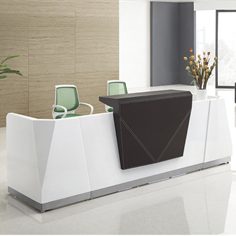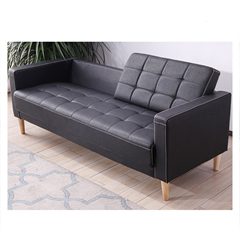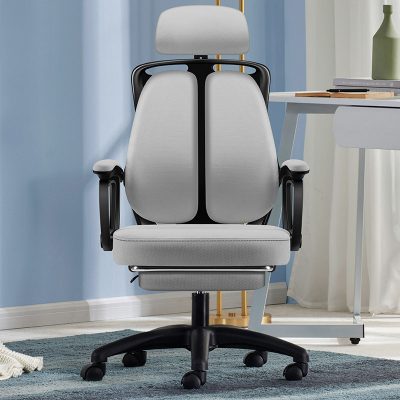Introduction: Office productivity and employee well-being go hand in hand. Creating a conducive and comfortable workspace is crucial for fostering a positive work environment. In this blog, we will explore how ergonomic chairs play a vital role in enhancing office productivity and promoting the well-being of employees.
- Comfort and Focus: Ergonomic chairs provide exceptional comfort, reducing physical discomfort and distractions during work hours. Comfortable employees can maintain better focus, leading to increased productivity and improved task completion.
- Reduced Absenteeism and Fatigue: Uncomfortable chairs can contribute to physical fatigue and discomfort, leading to increased absenteeism and reduced employee morale. Ergonomic chairs promote better posture and reduce physical strain, helping to decrease absenteeism and improve overall well-being.
- Preventing Work-Related Injuries: Ergonomic chairs are designed to prevent work-related injuries, such as back pain, neck strain, and repetitive strain injuries (RSIs). Investing in ergonomic chairs demonstrates a commitment to employee health and safety, resulting in fewer work-related injuries.
- Improved Employee Engagement: Providing employees with comfortable and supportive ergonomic chairs shows that the organization values their well-being and is committed to creating a positive work environment. This, in turn, improves employee engagement and fosters a sense of loyalty toward the company.
- Enhanced Morale and Job Satisfaction: Ergonomic chairs contribute to employee morale and job satisfaction. Comfortable employees are happier and more content with their work environment, which positively impacts their overall job satisfaction.
- Optimal Performance and Creativity: A comfortable and ergonomic workspace allows employees to perform at their best. When employees are physically at ease, they can focus their energy on tasks, enabling them to be more creative and innovative in their work.
- Long-Term Cost Savings: While ergonomic chairs may have a higher initial cost, the long-term benefits far outweigh the investment. By preventing work-related injuries and promoting employee well-being, ergonomic chairs lead to long-term cost savings for the organization.
Conclusion: Ergonomic chairs play a pivotal role in office productivity and employee well-being. By providing employees with comfortable and supportive chairs, organizations can create a positive work environment that fosters engagement, creativity, and overall job satisfaction.













